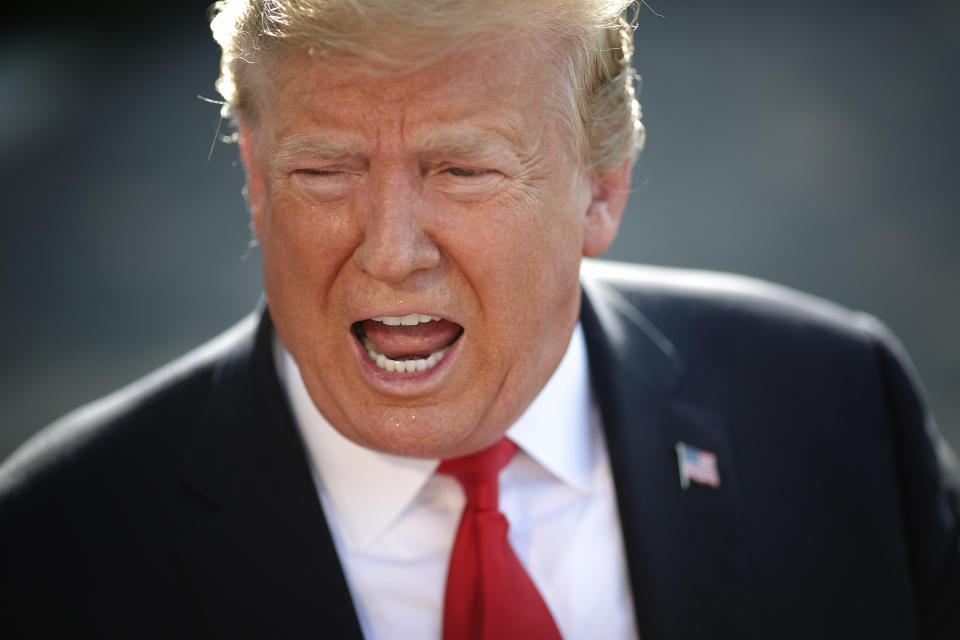Trump is confused about impeachment, but he knows it’s a 'dirty' word
When President Trump was asked about the possibility of impeachment Thursday morning outside the White House, he understood that it was bad — “a dirty, filthy, disgusting word” — but seemed confused about how the process works.
“I don't see how,” said Trump when asked if he thought he was going to be impeached. “They can because they're possibly allowed although I can't imagine the courts allowing it. I never got into it. I never thought it would even be possible to be using the word. To me it's a dirty word, the word 'impeach.' A dirty, filthy, disgusting word."
Trump had previously said he would “first head to the U.S. Supreme Court” if Democrats ever attempted to impeach him, but the Constitution gives the courts no role in the impeachment process, except Supreme Court Chief Justice John Roberts would become involved later in the process in the Senate. Here’s how the impeachment process would occur if House Speaker Nancy Pelosi, who has been against the idea despite a push from some prominent figures in her caucus, decided to move forward with it.
First, the House would begin a formal impeachment inquiry into whether the president had committed “treason, bribery, or other high crimes and misdemeanors.” Following special counsel Robert Mueller’s report — and his reminder Wednesday that his investigation had not exonerated Trump — it’s likely that obstruction of justice would top the list but concerns have also been raised about Trump’s personal and business dealings, including allegations of insurance fraud, dubious tax schemes and money laundering.

Trump made an effort to parse the legal standard, which is not explicitly defined in the Constitution, with reporters. “You know, it's high crimes and, not with — or — it’s high crimes and misdemeanors,” he said. “There was no high crime and there was no misdemeanor. So how do you impeach based on that?”
If members believed the president had indeed committed a crime or crimes, the full House, Democrats and Republicans, would vote on articles of impeachment. If they approve one or more of them by a simple majority, the president would officially be impeached, but not removed from office.
At that point, proceedings would move to the Senate, which is required to hold a trial, with members of the House serving as the prosecution and lawyers chosen by the White House mounting a defense. Roberts would preside. For the president to be removed from office requires a two-thirds majority of the Senate. If the vote falls short, the president is acquitted and remains in office.
Two previous presidents have been impeached — Andrew Johnson in 1868 and Bill Clinton in 1998 — but the Senate failed to convict and they both remained in office. The House began impeachment proceedings against Richard Nixon in 1974, but he resigned before a full House vote on the articles took place, likely avoiding the shame of becoming the only president to be removed from office.
Read more from Yahoo News:



